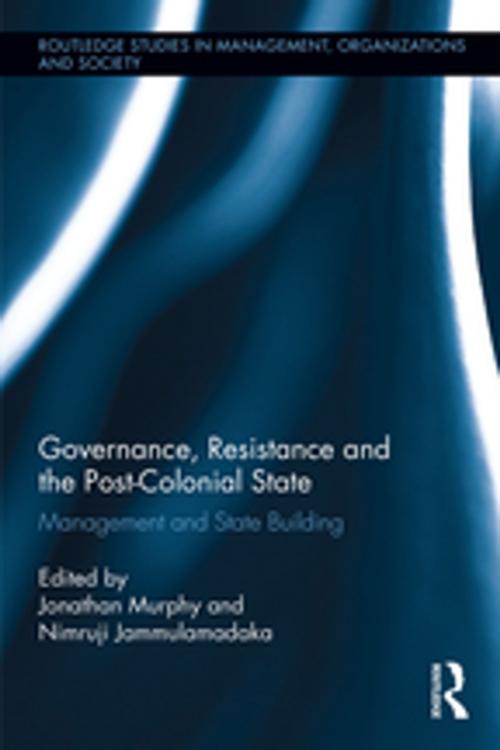| Author: | ISBN: | 9781134842193 | |
| Publisher: | Taylor and Francis | Publication: | July 14, 2017 |
| Imprint: | Routledge | Language: | English |
| Author: | |
| ISBN: | 9781134842193 |
| Publisher: | Taylor and Francis |
| Publication: | July 14, 2017 |
| Imprint: | Routledge |
| Language: | English |
The manifestation of the colonial nation-state as a legal-bureaucratic-police structure – an exploitation tool – undermined customary modes of governance in colonies. When post-World War II independence of colonies transferred ownership of the state structure to the colonized elite, electoral and civil society politics battled for capture of this post-colonial state. Meanwhile, the state was also forced to build its legitimacy in the face of customary governance practices seeking rehabilitation and decolonization in the midst of civil wars and strife. This "state-building social movement" was further complicated with the global spread of neoliberalism and neocolonialism, and herein lies the significant difference between the post-colonial nation-state and the Western nation-states.
This book fills the gap in literature and argues that it is necessary to foreground discussions of the nature of the post-colonial nation-state in examining resistance and provides a window into the dynamics of the post-colonial state and its implication in everyday organizing and resistance.
The manifestation of the colonial nation-state as a legal-bureaucratic-police structure – an exploitation tool – undermined customary modes of governance in colonies. When post-World War II independence of colonies transferred ownership of the state structure to the colonized elite, electoral and civil society politics battled for capture of this post-colonial state. Meanwhile, the state was also forced to build its legitimacy in the face of customary governance practices seeking rehabilitation and decolonization in the midst of civil wars and strife. This "state-building social movement" was further complicated with the global spread of neoliberalism and neocolonialism, and herein lies the significant difference between the post-colonial nation-state and the Western nation-states.
This book fills the gap in literature and argues that it is necessary to foreground discussions of the nature of the post-colonial nation-state in examining resistance and provides a window into the dynamics of the post-colonial state and its implication in everyday organizing and resistance.















